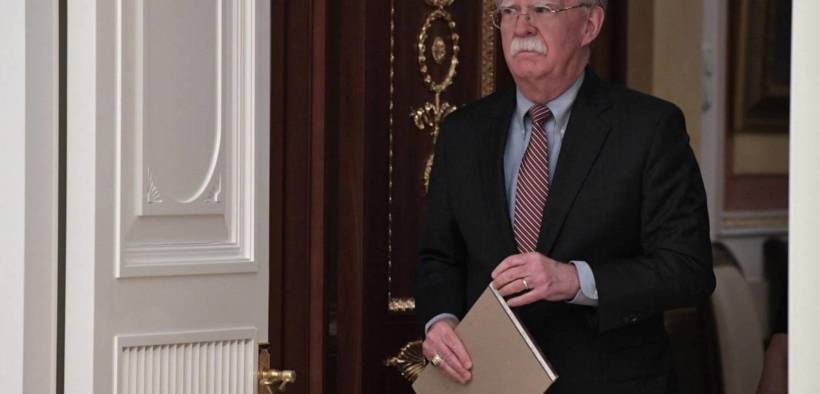US Allies Fear Looming US-Iran War, While Trump Admin Clashes Over Iran Policy

European allies voiced concern this week that the U.S.-Iran tensions could accidentally trigger a conflict after the Pentagon dispatched a Patriot missile defense battery, a bomber task force, an amphibious transport dock and a carrier strike group to the region.
“The Pentagon is deploying a B-52 bomber task force alongside the Abraham Lincoln Carrier Strike Group to the U.S. Central Command area of operations amid threats of ‘heightened Iranian readiness to conduct offensive operations,’” the Military Times reported earlier in May after speaking to officials within the United States military, who said they were responding to perceived Iranian threats to troops in the region.
“The exact nature of the threat that was received was also not provided by the Pentagon. The mission comes as Iran is expected to announce plans to withdraw from parts of the 2015 nuclear deal this week, one year after the U.S. abandoned the agreement,” the report continued.
US Allies Worry US and Iran Heading Into Conflict
The Military Times published the following just over a week later, “U.S. allies involved in operations in the Middle East appear uninterested in the increasingly bellicose rhetoric from the White House and Pentagon regarding Iran.” It would go on to add:
Germany and the Netherlands suspended military training operations in Iraq due to increasing regional tensions, a Spanish frigate was recalled from its voyage with a U.S. Navy carrier strike group, and a British general was sharply rebuked by U.S. Central Command after telling reporters that Iranian-backed militias in Iraq and Syria did not pose an increased risk to U.S. and coalition allies fighting the Islamic State.
National Security Adviser John Bolton, and other administration leaders, have repeatedly warned that intelligence shows there is an increased threat that Iran or its proxy groups could attack the U.S. or its allies, though they have withheld the details of that intelligence.
European allies voiced concern this week that the tensions could accidentally trigger a conflict after the Pentagon dispatched a Patriot missile defense battery, a bomber task force, an amphibious transport dock and a carrier strike group to the region.
Conflicting Iran Attitudes in the Trump Administration
“Even the tough-talking U.S. president, ever fond of trashing Tehran, is reported to have pushed back on White House National Security Adviser John Bolton’s calls for a more hawkish Iran policy,” the Washington Post reported earlier in the month. Evidently, President Trump further distanced himself from Bolton’s stance by telling acting Defense Secretary Patrick Shanahan that he did not want to go to war with Iran.
“It’s clear that Iran is behind the Fujairah attack. Who else would you think would be doing it? Someone from Nepal?” Bolton stated on Wednesday regarding the May 12 attacks on oil tankers off the coast of the United Arab Emirates (UAE). Iran immediately denied it had anything to do with it and called for Bolton to present evidence.
With the alleged clashing of philosophies within the administration, it’s likely rhetoric and tension will continue to increase.
Newsweek reported on how the conflicting issues began in the Trump administration regarding Iran.
Bolton’s appointment came just over a year into Trump’s term and, less than a month later, the Republican leader pulled out of the 2015 nuclear deal with Iran, an agreement also signed by China, the EU, France, Germany, Russia and the United Kingdom. Though the International Atomic Energy Agency continually found that Tehran had complied with the deal’s nuclear limits, Trump argued it did not go far enough in halting Iran’s alleged support for militant groups and its ballistic missile activity.
If United States intervention trends continue, war is a possibility. However, if President Trump is committed to not bomb Iran, catastrophe may be avoided. China, Europe and Russia by all reports are against any such conflict, which could reduce the sway Bolton has within the Trump administration.













